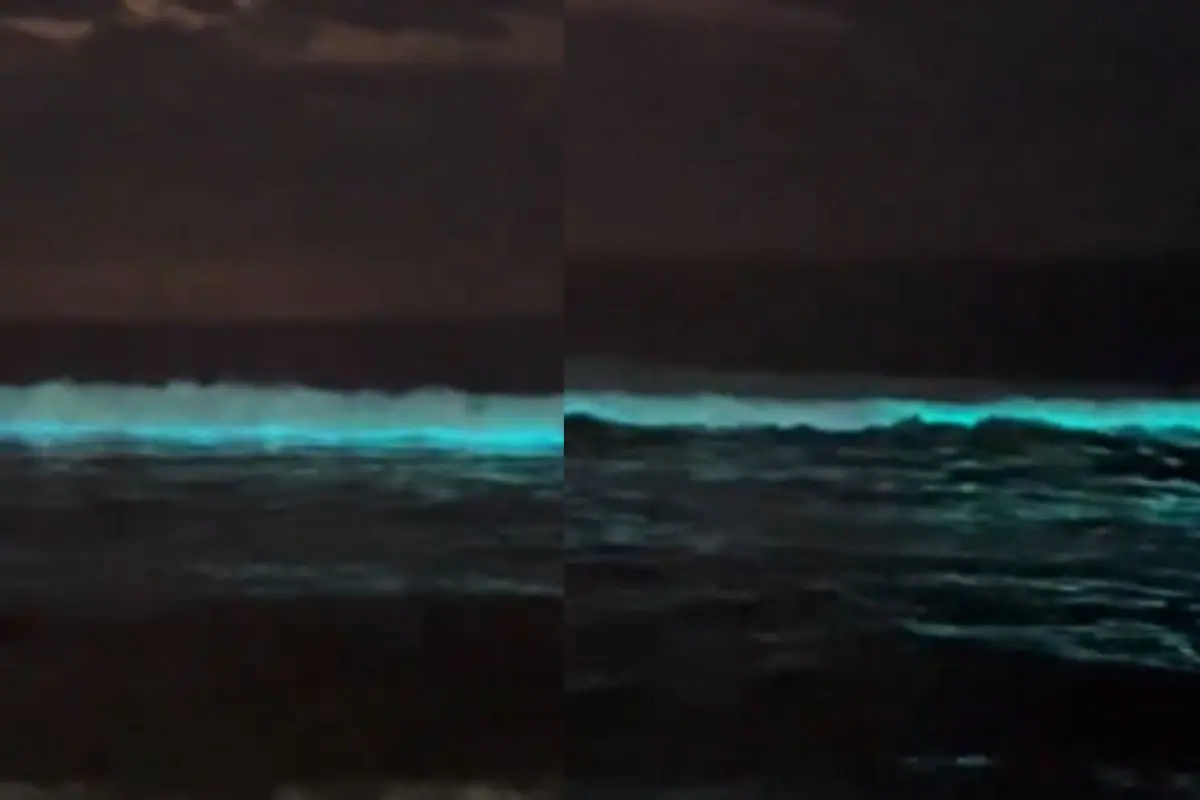Oct 23,2024

Bioluminescent waves recently mesmerized onlookers along Chennai’s East Coast Road (ECR), creating a breathtaking spectacle that quickly gained traction on social media. This enchanting display is caused by the light emitted from certain marine organisms, such as the dinoflagellate Noctiluca scintillans, which react to water turbulence from waves or currents through chemical processes.
On the night of October 18, beachgoers at ECR were treated to breathtaking waves aglow with blue light. Following a storm that brought heavy rainfall to the area, the nutrient-rich waters created an ideal environment for these luminous creatures to thrive.
Just now enjoyed the mesmerising Fluorescent waves at ECR beach!! #Bioluminescence pic.twitter.com/6ljfmlpyRO— Dr ANBUMANI RAMADOSS (@draramadoss) October 18, 2024
It is not a very rare event, especially along the Chennai coast; such events have occurred in the past years with most memorable observations recorded in 2019. They are associated with factors such as nutrient input due to rain and fluctuation in sea temperature. Despite their aesthetic appeal, large blooms of bioluminescent organisms may cause disturbances in the balance of the ecosystem, depriving the water of oxygen.
While Chennai’s ECR beach is currently a hotspot for bioluminescence, there are several other locations across India where this enchanting phenomenon can be observed under the right conditions:
These beaches are located in South Goa and when the sea is calm, they lighten up in a beautiful bioluminescent at night.
Situated 7km from Udupi, Mattu Beach rarely provides any glimpse of the waves at night. It remains one of the least visited locations for viewing this wonder of nature.
Havelock Island in particular has bioluminescent planktons in its surrounding waters. During the night, excursions in kayaks are possible, which gives visitors an opportunity to see the place at night and enjoy the magical luminosity of the water.
.svg)
